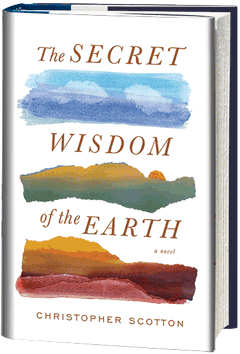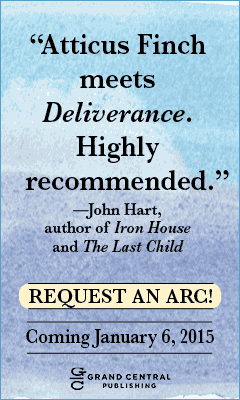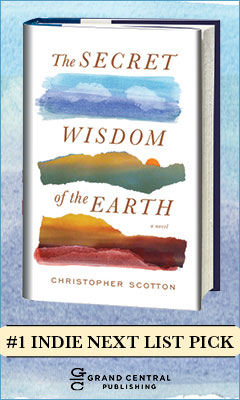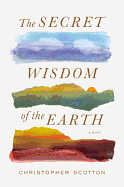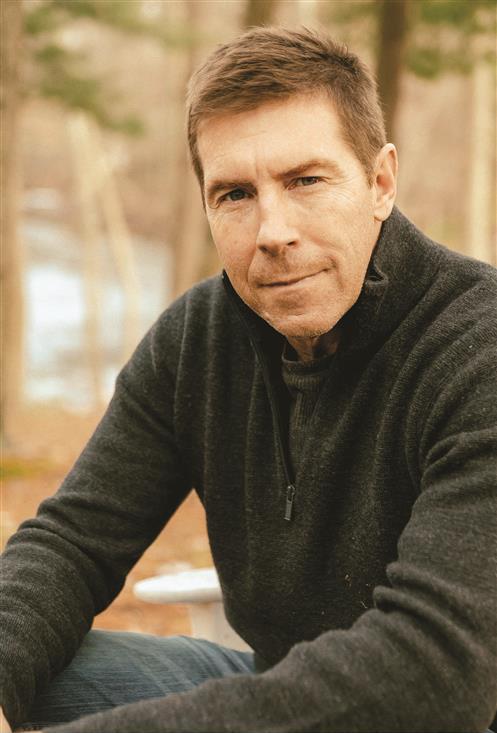The Secret Wisdom of the Earth
by Chris Scotton
Making his debut with an ambitious coming-of-age novel, Christopher Scotton paints a vivid portrait of the Appalachian region and its people. Using their flaws and charms to highlight and shadow, Scotton produces a masterpiece in The Secret Wisdom of the Earth.
Leaving Indiana for Medgar, Kentucky, 14-year-old Kevin Gillooly and his mother try to escape the horror of an accident that took the life of Kevin's younger brother. His mother is nonfunctional with guilt, and Kevin is battling his own trauma, plus the weight of blame from his father for the accident.
Medgar offers Kevin a freedom he hasn't known before and one he desperately needs to survive the suffocation his family's loss has created. He wanders the countryside with his new friend Buzzy Fink, discovering both the beauty and the hostility of a land that means everything to his grandfather, Arthur "Pops" Peebles. As adult Kevin narrates the story, he fondly recalls: "Off we'd go, breaknecking the hills and plundering the hollows where the compounded guilt and grief I felt would fall away like original sin at a baptismal."
Through this small backwoods town in Kentucky, Scotton sketches a rainbow of humanity. Using natural--and often humorous--dialogue, vivid descriptions and authentic behaviors, he populates Medgar with a colorful cast Kevin meets as he assumes the role of assistant to his large animal vet grandfather. While most in Medgar are poor, this is the least of what defines them: "The Finks are poor, but they're proud poor. Esmer runs the hollow hard. Kids stay in school; they truck their garbage out once a week. These are solid people." Contrast them to the Budgets, who "generally don't go to school past the tenth grade; they live off the land, get handouts, and work the mines and odd jobs to make up the rest. They've been living in this hollow for almost one hundred years, marrying each other and having each other's babies. The gene pool is getting a bit shallow."
And with the diversity of people comes an array of issues: racism, hate crimes, poverty and the issue that impacts them all, mountaintop removal.
Coal mining has been a way of life in Medgar for many years, but instead of tunneling into the earth, the coal companies now remove the tops of mountains through explosions, leaving the landscape ripped open and scarred. For some of Medgar's residents, including Pops and Paul Pierce, the town hairstylist, this is a travesty that must be stopped. It's erasing not just the physical land but even the history of Medgar's people: the acid rain created from coal dust erodes the headstones in the graveyards.
One Medgar resident bemoans, "We are talking about mountains that have been here for ten thousand years. Mountains that have defined us for generations... and now three are gone.... they are not coming back.... Ever.'" And Pops points out "People don't care about experts; they care about Betty Dodger being a widow.... They care about black water coming out of the faucets up in Corbin Hollow. They care about their neighbors getting sick from all this crap in the water.'"
As dark as Scotton daubs mountaintop removal onto his picture of Appalachia, Kevin's narrative reveals the other side as well: struggling families who have no other way of making a living in the harsh, elevated landscape. Their mineral rights and land ownership are all they can leverage. Still, Pops and Paul work to rally the Medgar citizens against the mining companies and their devastation of Kentucky's mountains.
The division between the factions intensifies during that summer in 1985. A series of violent crimes rocks the town with more force than the mountaintop explosions and, as the investigation stalls for lack of evidence, Kevin learns the hard truth; in Pop's words, "Evil doesn't have to be loud, son. In fact, it reserves that for the merely boorish. Evil is quiet, stealthy--it sneaks up on you, smiles, and pats you on the back while p*ssing down your leg."
The death of Kevin's brother, the wounding of nature and the crimes that happen in Medgar are all brutally dark and ugly, yet The Secret Wisdom of the Earth is splendid and hopeful. Scotton's undeniable love and awe for this region shine through as he painstakingly portrays strokes of beauty in man and nature, even the mystical in the form of a stunning white stag Kevin encounters in the wild. The belief that everyone can make a difference in even the smallest of efforts shines optimism in the bleakest corners of the novel.
Pops beautifully embodies this kind of humble altruism, as in a lesson he gives Kevin about stocking the "courtesy pile" of firewood at a campsite. Kevin wants to know what happens if people don't do their part and Pops responds,"Well, somebody's gotta be first, don't you think? Just imagine what would happen if we all left a place a little better than we found it.'" This advice carries a multitude of meanings in the book, but it also reflects what Scotton has done with his debut novel. He's left the literary world a little better than he found it. --Jen Forbus



